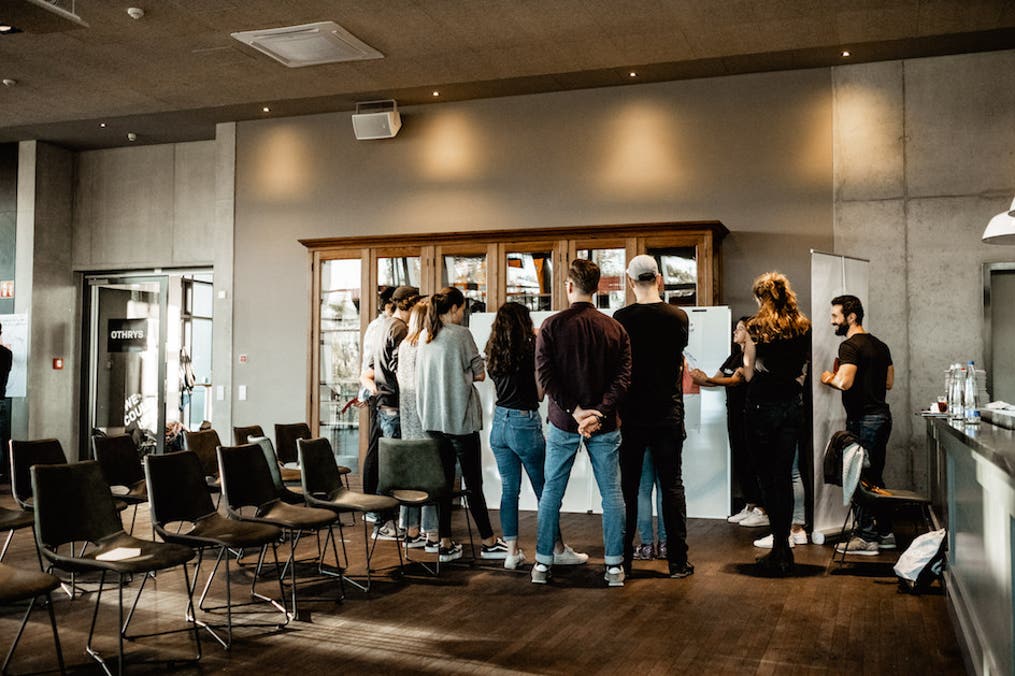Jim Rohn says, “Work harder on yourself than you do on your job!” Why? Because “when you work hard on your job you can make a living. When you work hard on yourself, you can make a fortune”.
As wonderful and encouraging this philosophy might be, it’s work - a lot of work.
When starting out to work on ourselves, it can be overwhelming, like digging for gold with our hands, in the mud, and on our own. But it doesn’t have to be that way. There are many areas which have proven to be great starting points for becoming stronger and better in building our lives. Here are health expert Carlo Reumont's top tips for working as hard on yourself as you do on your work.
1. Work less (at work) and build more.
Are you building something at work? Administrating is not building. Planning is not building. Not even creating is building. Building is what Dr. Dre did with several record labels and rap artists, what Einstein did with a new world of thought, what Tim Ferriss did with a new way of life. If your work entails building something of lasting value for yourself and others, great, stop reading this point and continue with what you are doing. If not, and you want to create a company, movement or lifestyle of your own, you’ve got to start building. Step by step, day by day, week after week, month after month, year after year. As the Chinese Proverb goes: “No need to ask about the crops. It’s all about hard work and fertilizer.”
2. Work out.
Whatever your workout is, do it! Whether it’s a run, classic stretching, yoga, lifting weights or calisthenics, whether it’s a swim, a surf or even just a simple walk, health is non-negotiable when it comes to personal growth. A healthy person is more likely to feel confident, motivated and ready to set off on the road to achieving their goals. Knowing that we can rely on our bodies gives us the confidence that we can rely on other aspects of ourselves.
3. Practice honesty and the truth.
Let’s be honest: We don’t learn to be honest. It’s not easy nor is it normal to share our true thoughts and feelings in a safe way. So, we keep everything bottled up. However, through practicing and testing ourselves, we can progress towards living a life that is more true to ourselves.
Moments of conflict are moments of truth. Do you stand up for yourself or people you value, or do you give in, not to rock the boat? It’s not easy to say what we really think and stay composed and considerate at the same time. Learning this balance, however, creates a life where who are inside, is congruent with who we are in relationships.
4. Whatever you want, write it down!

Anyone who has written a book, a thesis or an essay can easily recall what they wrote about. Talking, on the other hand, is not particularly effective in terms of ingraining ideas in the human mind. More often than not, talking about goals relinquishes their power. Why? When we talk, the words disappear as soon as we’ve said them, whereas the written word is far more enduring and forces us to make our thoughts coherent and formulated. Get into the habit of setting your dreams and goal down on paper.
5. Visit (well selected) workshops and seminars.

These can be incredibly helpful, but beware: many workshops are phony. Most events get us high on enthusiasm for a few days. They promise to “totally transform your life with inner world principles for outer world results”. The truth is however, it’s all up to you to put what you’ve learnt into practice. And that is where most fall down. The real workshop begins when the instructor-led sessions are over. Do not fall into the trap of believing that two days of high energy will get you to where you want to go.
6. Watch what you eat

Again, this one may seem obvious, but it can be difficult. You don’t have to be a foody to eat well, you’ve just got to get into the habit of eating well.
What does food have to do with personal development? It’s all about energy; after all, food is the gasoline that keeps the engine running. Start by finding out which foods get you down and which get you energized. Take it from there by making it a habit to buy and eat what is good for you.
7. Read, learn and listen.

Most people stop learning when they finish school or university. Why? They’re not obliged to any more. We need a good reason to learn, to read and to listen and when it isn’t compulsory, it can be easy to take our feet off the gas. If we want things to change in our lives, we have to learn about them. Once our network of knowledge expands, it becomes easier to make a conscious effort to find out what works for us.
8. Reflect on the day, week, month and year.
Reflection is where the extroverts can learn from the introverts. Just like we take inventory of a warehouse, we want to learn to take inventory of our mind. It’s easy to do, but it’s also easy not to do. If you belong to the few people in the world that actually do have a journal and write down what is happening in their life, be smart and keep it to yourself. The most important thing that happens, when we do this is that we value our time more.
